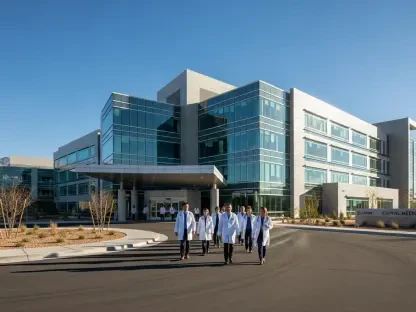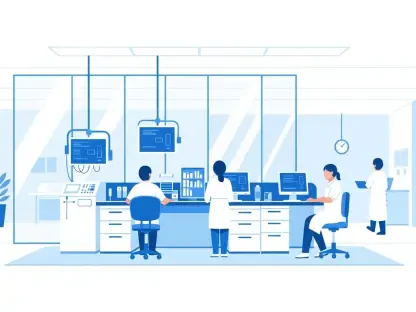In Illinois, a staggering number of residents struggle to access basic dental care, with underserved communities and individuals with disabilities facing some of the most significant barriers, as reports indicate that a substantial portion of the population, particularly in high-poverty areas, lacks adequate oral health services due to systemic shortages of providers and financial constraints. This challenge not only impacts individual well-being but also burdens public health systems. Amid this pressing issue, a beacon of hope emerges as Milestone Dental Clinic in Rockford secures a grant from the Delta Dental of Illinois Foundation to enhance care for disabled patients, spotlighting a broader initiative to address disparities in dental access across the state.
Overview of Oral Health Care Challenges in Illinois
The state of oral health care in Illinois paints a troubling picture, marked by stark disparities in access and service availability. Many residents, especially in rural and low-income urban areas, encounter difficulties finding dental providers who accept Medicaid, leaving large segments of the population without essential care. Individuals with disabilities face even greater hurdles, as few clinics are equipped to handle their unique needs, exacerbating health inequities.
Beyond provider shortages, high poverty rates compound the problem, with families often unable to afford even basic dental treatments. This financial barrier disproportionately affects children and adults with special needs, who may require specialized equipment or tailored approaches to care. The lack of accessible services in certain regions further isolates these groups, creating a cycle of neglected oral health that impacts overall quality of life.
Addressing oral health remains a critical component of holistic well-being, as untreated dental issues can lead to severe medical complications, including infections and chronic pain. Poor dental health also correlates with diminished educational and economic outcomes, particularly for children in underserved communities. Tackling these challenges is not just a matter of access but a fundamental step toward improving public health across Illinois.
Delta Dental of Illinois Foundation’s Grant Program
Scope and Impact of the Community Grants Program
The Delta Dental of Illinois Foundation has taken a proactive stance against dental care disparities through its annual Community Grants Program, awarding over $270,000 to 29 organizations statewide. This initiative targets systemic gaps by funding projects that expand access and education for underserved populations. A key recipient, Milestone Dental Clinic in Rockford, received support to provide essential services like oral exams, cleanings, and fluoride treatments specifically for uninsured or financially struggling patients with disabilities.
Since its inception, the program has demonstrated a significant long-term impact, channeling over $2 million into dental care improvements across Illinois. These funds have empowered clinics and health departments to serve communities that otherwise lack resources, fostering sustainable change. Milestone Dental Clinic’s grant, for instance, enables the creation of individualized treatment plans, ensuring that patients with disabilities receive care tailored to their specific circumstances.
The ripple effect of these grants extends beyond immediate care, as they build capacity within local health systems to address ongoing needs. By investing in both infrastructure and outreach, the foundation lays the groundwork for lasting improvements. This strategic approach highlights a commitment to not just treating symptoms but transforming the landscape of dental access in the state.
Diverse Recipients and Targeted Solutions
Beyond Milestone Dental Clinic, the grants support a variety of organizations with innovative projects tailored to local challenges. Bond County Health Department plans to expand its dental clinic to accommodate more patients, while Clay County Health Department focuses on preventive care through mobile units that reach remote areas. Similarly, Southern Seven Health Department aims to extend education and services across seven counties grappling with acute provider shortages.
Other recipients, like DeWitt-Piatt Bi-County Health Department, are adopting technology to enhance service delivery, acquiring handheld X-ray units for more effective preventive care in underserved regions. These community-specific solutions address unique barriers, whether geographic isolation or lack of equipment, ensuring that resources align with actual needs. Such targeted interventions help bridge systemic gaps that have long hindered equitable dental care.
The diversity of approaches among grant recipients underscores the complexity of dental access issues in Illinois. From mobile outreach to technological upgrades, each project complements the others, creating a network of support. This collaborative framework maximizes the impact of the funding, ensuring that no community is left behind in the push for better oral health outcomes.
Innovative Approaches to Oral Health Equity
The grants also fuel creative programs designed to improve oral health equity, particularly for vulnerable groups like children and individuals with disabilities. The Hult Center for Healthy Living in Peoria, for example, will roll out an educational initiative for low-income pre-K through first-grade students, using interactive props to teach proper brushing and flossing techniques. This hands-on learning approach aims to instill lifelong habits early on.
Elsewhere, IWS Family Health in Chicago is establishing a dedicated dental home for children in high-poverty areas, complete with spaces designed for those with disabilities and staffed by bicultural, bilingual professionals. Meanwhile, Loyola University Medical Center in Maywood is expanding appointment slots and introducing virtual assessments to better serve children with specific health requirements. These tailored solutions demonstrate an understanding of diverse patient needs and cultural contexts.
Projects like the Heal Elgin Project by Elgin Adventist Church further exemplify innovation by offering direct care through a two-day clinic for underserved populations, integrating dental services with broader health support. The emphasis on culturally competent staff and accessible formats ensures that care reaches those traditionally excluded. Such initiatives highlight how creativity and community focus can drive meaningful progress in addressing oral health disparities.
Addressing Systemic Barriers in Dental Care Access
Systemic barriers to dental care in Illinois remain formidable, with provider shortages topping the list of challenges. Many areas lack enough dentists, especially those willing to accept Medicaid, leaving entire communities without viable options. Financial constraints add another layer of difficulty, as out-of-pocket costs deter even insured individuals from seeking timely treatment.
Geographic limitations also play a significant role, particularly in rural regions where clinics are sparse and travel poses a burden. For individuals with developmental disabilities, the scarcity of specialized care further compounds these obstacles, often resulting in unmet needs. The Delta Dental of Illinois Foundation’s grants confront these issues head-on by funding direct services, supporting technology adoption like portable equipment, and fostering community partnerships to expand reach.
A clear focus on equity drives these efforts, prioritizing high-poverty areas and populations with unique challenges. By channeling resources into underserved regions and demographics, the program seeks to dismantle long-standing inequities. This comprehensive strategy not only addresses immediate gaps but also builds a foundation for systemic change in how dental care is accessed and delivered.
Future Directions for Oral Health Initiatives in Illinois
Looking ahead, the Delta Dental of Illinois Foundation remains committed to advancing oral health through its Community Grants Program, with the next application cycle tentatively set for late summer of the following year. This ongoing support signals a dedication to sustaining momentum and encouraging new organizations to join the effort. The cycle offers an opportunity for further expansion of impactful projects across the state.
Innovation in dental care delivery holds promise for the future, with potential growth in areas like telehealth and mobile services to reach isolated communities. Broader educational outreach could also play a pivotal role, equipping residents with the knowledge to prioritize oral health. These advancements, supported by grants, aim to keep pace with evolving community needs and technological capabilities.
Sustainability remains a cornerstone of these initiatives, as partnerships between health organizations, local governments, and foundations strengthen the framework for long-term success. The focus on adaptability ensures that programs can respond to changing demographics and challenges. This forward-thinking approach positions Illinois to make significant strides in reducing oral health disparities over time.
Building Healthier Communities Through Targeted Grants
Reflecting on the impact of the Delta Dental of Illinois Foundation’s efforts, it becomes evident that targeted grants have ignited crucial advancements in oral health care access across Illinois. The support for Milestone Dental Clinic in Rockford stands as a testament to the power of focused funding, enabling tailored care for patients with disabilities who have long been overlooked by traditional systems.
The multifaceted approach—spanning direct services, educational programs, and technological innovations—has carved a path toward equity, addressing diverse barriers with precision. As a next step, stakeholders could prioritize scaling these successful models, ensuring that best practices reach more communities. Strengthening collaborations with local leaders and advocating for policy changes to increase provider availability emerge as vital considerations for sustaining this progress and fostering healthier futures.









